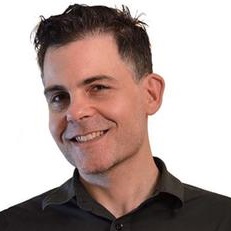
Dr. Hanson is the founder and CEO of Hanson Robotics Limited. He brings a strong history of innovation and leadership in robotics, arts, academia, and entrepreneurship. Envisioning, organizing, and executing renowned projects in cognitive robotics, AI, the arts, education, product design, and business. In the past decade, he has built a worldwide reputation for creating the world’s most humanlike, empathetic robots, endowed with remarkable expressiveness, aesthetics and interactivity. He has produced many renowned, one-of-a-kind robot characters that have received massive media and public acclaim.
Dr. Hanson publishes regularly in materials science, artificial intelligence, cognitive science, and robotics journals, including the international society for optics and photonics (SPIE), The Institute of Electrical and Electronics Engineers (IEEE), the International Journal of Cognitive Science, IROS, the Association for the Advancement of Artificial Intelligence (AAAI) and AI magazine. He has been featured in numerous popular media outlets including New York Times, Popular Science, Scientific American, the BBC and CNN. He has been labeled a "genius" by both PC Magazine and WIRED, and has earned awards from NASA, NSF, AAAI, Tech Titans’ Innovator of the Year, and Cooper Hewitt Design Triennial.
At Walt Disney Imagineering, Dr. Hanson worked as both a sculptor and a technical consultant. He has spoken at venues including IEEE, SPIE, AAAI, DARPA, Massachusetts Institute of Technology (MIT), Dartmouth College, Brown University, Google, Sandia Labs, UCSD and AAAS annual meeting. Dr. Hanson received his BFA from Rhode Island School of Design in film/animation/video, and his Ph.D. from the University of Texas at Dallas, in interactive arts and engineering.
Dr. Hanson is working towards radical breakthroughs in humanizing robots—for machines with human-level intelligence, creativity, and physical capabilities, as well as humanlike compassion and understanding, to enable them to truly care, become our friends, and collaborate with us towards a better future. Ultimately, he aims to create a new generation of robots that exceed human brilliance, compassion, and wisdom—robots that he calls “Genius Machines.” He believes that, in addition to science and tech, arts and aesthetics are key, both to inspiring humans to care about machines, and to enable robots to achieve human standards of social intelligence, relationships, and ethics.